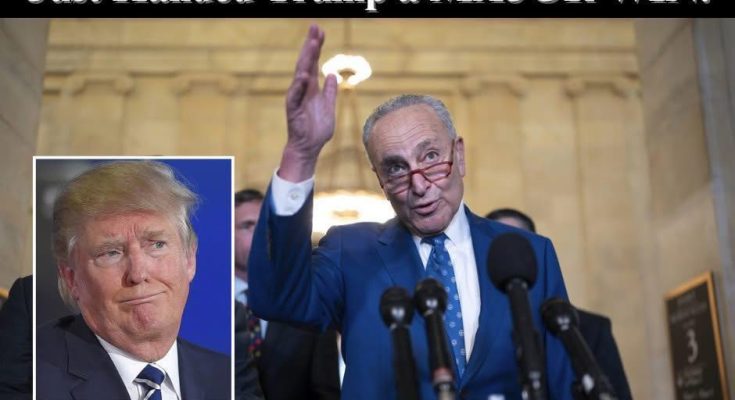Senate Minority Leader Chuck Schumer may eventually step down from his leadership role voluntarily, according to political experts, as discussions about the future of party leadership continue to grow.
Schumer, who has served for years in a top leadership position, recently faced criticism after supporting a government funding bill that many members of his own party opposed. Despite the controversy, Schumer reaffirmed his commitment to staying in office, telling NBC’s Meet the Press, “I’m not stepping down.”
Political analyst Danielle Vinson, a professor at Furman University, suggested that Schumer could be planning a “graceful exit” rather than being forced out. She noted that while pressure may continue to build, it’s unlikely Schumer would be abruptly removed from his leadership position. His current Senate term runs until January 2029.
The senator has faced growing calls for change following his support of a stopgap spending measure in March. That decision, supported by a small group of Democratic senators and one independent senator, was aimed at preventing a government shutdown. However, it drew significant backlash from many members of the House.
Discussions about potential new leadership have included speculation that younger figures within the party could step up. Some have pointed to Representative Alexandria Ocasio-Cortez as a symbol of a new generation of leadership, though she has not formally announced any intention to challenge Schumer, who is not up for reelection until 2028.
Vinson emphasized that Schumer, now 74, is likely aware of the growing calls for fresh leadership. Depending on the outcome of the 2026 midterm elections, the pressure for a transition could intensify. “He may be encouraged to step down if the party feels a new direction is necessary,” Vinson said.
In recent weeks, some lawmakers have weighed in on the topic. Senator Michael Bennet of Colorado commented during a town hall, “It’s important that people know when it’s time to go,” when asked about Schumer’s future. Representative Glenn Ivey of Maryland also noted it might be time for “new leadership” following the recent funding vote.
Analysts have pointed out that leadership changes often follow periods of political difficulty, particularly after election losses. With the next major elections on the horizon, many observers believe that discussions about leadership transitions will only grow louder.
For now, Schumer remains firm in his position, but the ongoing conversation highlights a broader movement for renewal and change within party leadership circles. Whether or not he decides to step aside before his term concludes, the next few years are likely to shape the future direction of the Senate leadership in significant ways.



